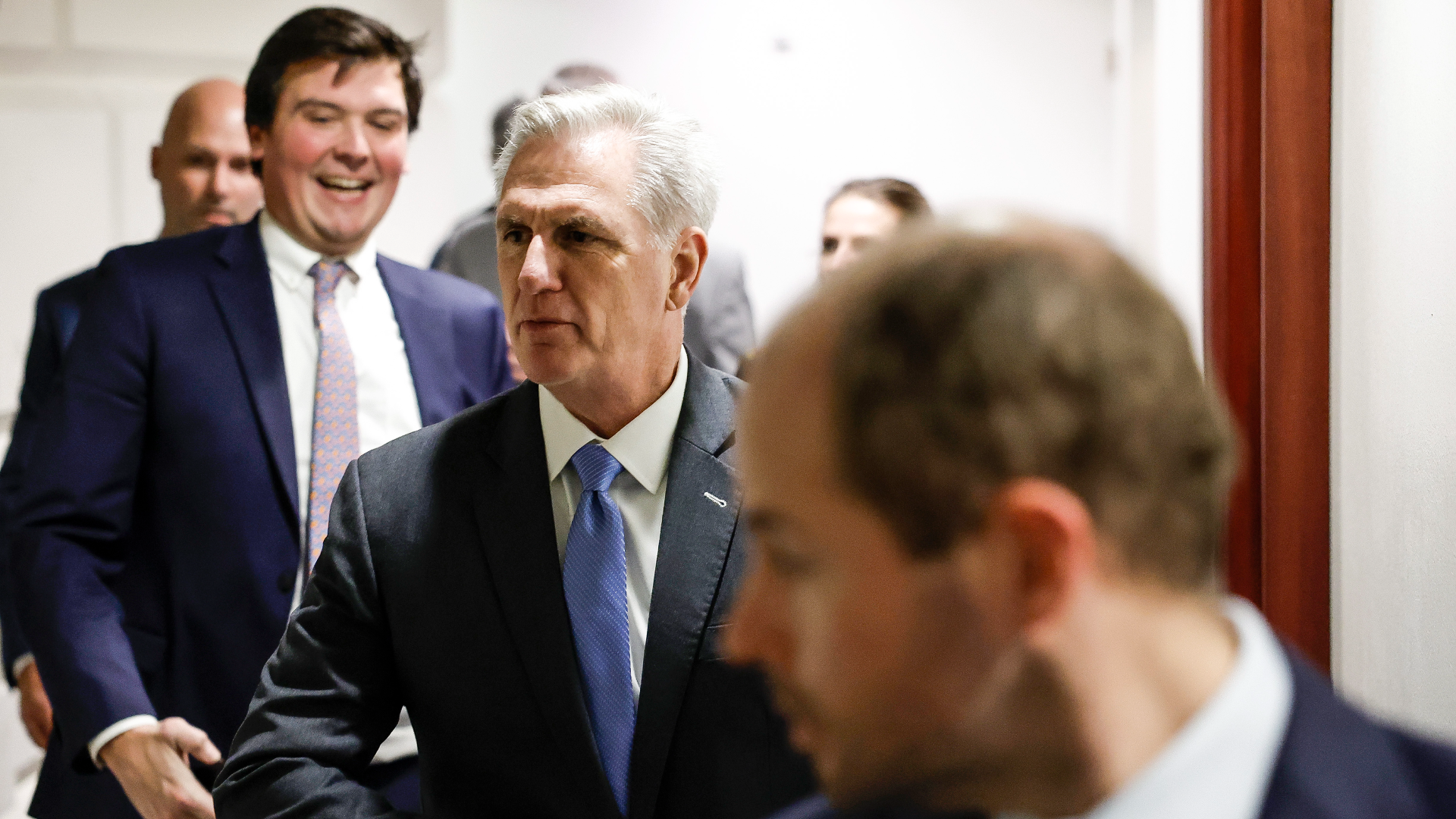Helping Rich People Evade Taxes Is House Republicans’ First Bill

With a nasty and prolonged battle to elect a Speaker behind them, Republicans on Monday passed their first piece of legislation in the new Congress, a bill to make it easier for big businesses and wealthy individuals to avoid audits by the Internal Revenue Service.
The bill, which passed on a party-line vote of 221-210, is intended to repeal about $80 billion in new funding for the IRS that was part of last year’s Inflation Reduction Act. Both Pres. Joe Biden and leaders in the Democratic-controlled Senate said Monday that they would block the House legislation.
Democrats, including Biden, had supported more money for the tax agency to enable it to keep pace with the complicated tax schemes devised by accountants working for large companies and rich people.
Donald Trump is a perfect example of how such tax avoidance measures work. His recently released tax returns are nearly 6,000 pages in total for the years 2015 through 2020. During that time, Trump paid zero in taxes for several years.
“The IRS is just not equipped to deal with sophisticated taxpayers like Donald Trump,” Rep. Raja Krishnamoorthi (D-IL) told MSNBC. “I think the internal records have revealed that the IRS didn’t feel like it could properly audit the 400 sub-returns that were indicated on Trump’s main 1040 tax return, and so I think it all speaks to the need for the IRS to get the resources they need to audit sophisticated taxpayers like Trump.”
But the disgraced ex-president is far from the only rich person to try to spend enormous amounts of money trying to evade paying their fair share. Instead of keeping up with wealthy people’s high-priced accountants in their auditing programs, the IRS has largely shifted its focus to middle- and lower-middle-class people. According to a report from the Center on Budget and Policy Priorities, the IRS had 8,321 skilled auditors in 2021, 40 percent fewer than it had in 2010. That much smaller auditor corps meant that almost no millionaires have been getting audited. Even Trump, who by law was supposed to be audited each year he was the president, avoided IRS audit scrutiny.
Rep. Richard Neal (D-MA), the highest-ranking Democrat on the House Ways and Means Committee, blasted the Republican bill in a floor speech before it passed.
“They don’t want a fairer tax administration — they think it’s bad for some of their supporters,” he said. “what they’re attempting to do tonight — is bad for middle-class families, it’s bad for small businesses, who then are asked to pay more when the people at the top don’t pay their fair share.”
Beyond making the enforcement of the U.S. tax code more unfair, the Republican bill will also add to the national debt. With less money being spent on increasing tax revenues, the federal government will face a net shortfall of $114 billion over the next ten years, according to an estimate released Monday by the Congressional Budget Office.
Cutting taxes for rich people and big businesses was the first priority for Republicans when they last controlled the House in 2017. That year, chamber Republicans made their first major piece of legislation the Tax Cuts and Jobs Act, which disproportionately cut taxes on high-income individuals and drastically lowered corporate tax rates.
TYT National Correspondent Matthew Sheffield reports about politics, media, and technology. You can follow him on Twitter or on Mastodon.
